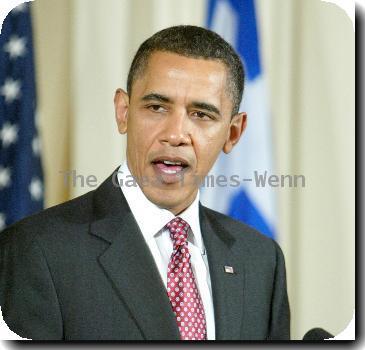UN climate chief expects no binding agreement on global warming until the end of 2011
By Arthur Max, APWednesday, March 31, 2010
UN official expects no climate deal until 2011
AMSTERDAM — A new legal agreement committing nations around the world to curb greenhouse gas emissions is unlikely to be completed before the end of 2011, two years later than originally envisioned, the top U.N. climate official said Wednesday.
Yvo de Boer, executive secretary of the U.N. climate change secretariat, said countries need to restore confidence in U.N. negotiations following the dismal results of the Copenhagen summit in December, which ended in a vague agreement of principles and a pledge of finances for poor countries most threatened by climate change.
“There was a great deal of frustration at the end of the Copenhagen conference in terms of process,” de Boer said in a conference call with reporters from his office in Bonn, Germany.
The next annual conference in Cancun, Mexico, beginning in November should get negotiations “back on track” among the 194 participating nations, with the aim of agreeing on the main elements that could be enshrined in a binding agreement a year later in South Africa, de Boer said.
“My hope is that Cancun will deliver what I had hoped Copenhagen would deliver,” said de Boer, who is resigning July 1 after nearly three years in office.
Negotiators will convene in Bonn next week for the first time since 120 heads of state and government met in the Danish capital. The weekend conference was expected to do little more than set a timetable for several more preparatory conferences leading up to the Cancun conference.
In talks in London, Britain proposed a possible two-track process for a new global emissions pact, in hopes of reviving the stalled talks.
The country’s Energy and Climate Change Secretary Ed Miliband suggested that if nations continue to founder in negotiations on a single binding pact there could be two treaties, rather than one.
Miliband suggested the 1997 Kyoto Protocol — an emissions reduction pact which is due to expire in 2012 — could be extended to set binding targets for the countries signed up to the process. A second treaty would cover countries who have never signed up to Kyoto, including the United States and China, he said.
“We are interested in trying to break the deadlock and find ways through some of the issues raised in Copenhagen,” Miliband said Wednesday, as representatives including White House economic adviser Larry Summers met.
“We do not want to let a technical argument about whether we have one treaty or two derail the process. We are determined to show flexibility as long as there is no undermining of environmental principles,” Miliband said.
De Boer urged the negotiators at next week’s Bonn meeting to stop discussing key issues in isolation and to take a holistic approach toward adapting to climate change, deforestation, transferring technology to poor countries and curbing carbon emissions.
Formal U.N. negotiations were set in motion in 2007 to reach a deal within two years that would succeed Kyoto, which set targets for 37 industrial countries to cut carbon dioxide and other greenhouse gas emissions blamed for raising the Earth’s average temperature.
Scientists warn that global warming will cause disruptions in agriculture, increase water shortages and could lead to a dramatic rise in sea levels and coastal flooding if the arctic ice sheets melt.
The Copenhagen Accord, a three-page deal salvaged in the closing hours of the summit, set a goal of limiting global temperatures to less than a 2 degree Celsius (3.6 degrees Fahrenheit) increase above preindustrial levels, but didn’t say how that should be achieved. It pledged $3 billion over the next three years for poor countries to adapt to climate change and asked countries to submit pledges for curbing their carbon emissions.
On Wednesday, the U.N. climate secretariat released its official report on the Copenhagen conference and listed voluntary commitments from 75 industrial and developing countries to reduce or limit the growth of their emissions by 2020. The report said those countries represented 80 percent of global emissions from energy use.
De Boer said the commitments fell short of the cuts needed to keep the Earth’s temperature from rising more than 2 degrees.
Negotiators had originally set 2009 as the target date for a new climate treaty to allow time for ratification and ensure a seamless transition when the Kyoto Protocol expires in 2012. Failure to replace Kyoto in time could lead to a legal gap when no binding rules are in place.
But De Boer said he expected countries to continue their climate change policies with or without a new accord. If a deal can be reached in South Africa, “we will have made it in time.”
____
Associated Press Writer David Stringer in London contributed to this report
Tags: Air Quality, Amsterdam, Barack Obama, Bonn, Climate, Copenhagen, Denmark, Environmental Concerns, Environmental Policy, Europe, Events, Germany, International Agreements, Netherlands, Western Europe

